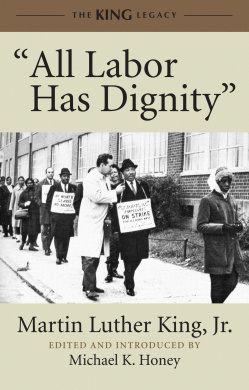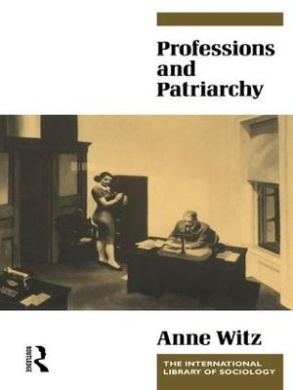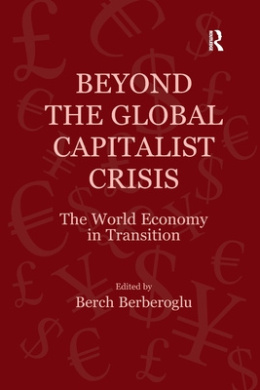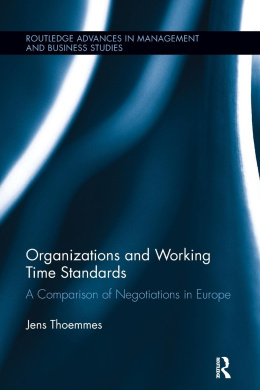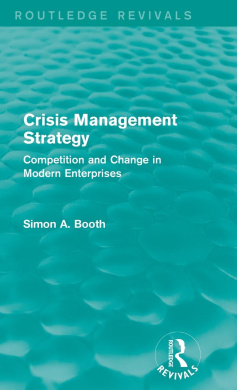Description
An unprecedented and timely collection of Dr. King’s speeches on labor rights and economic justice Covering all the civil rights movement highlights–Montgomery, Albany, Birmingham, Selma, Chicago, and Memphis–award-winning historian Michael K. Honey introduces and traces Dr. King’s dream of economic equality. Gathered in one volume for the first time, the majority of these speeches will be new to most readers. The collection begins with King’s lectures to unions in the 1960s and includes his addresses made during his Poor People’s Campaign, culminating with his momentous “Mountaintop” speech, delivered in support of striking black sanitation workers in Memphis. Unprecedented and timely, “All Labor Has Dignity” will more fully restore our understanding of King’s lasting vision of economic justice, bringing his demand for equality right into the present. Dr. Martin Luther King, Jr. (1929-1968), Nobel Peace Prize laureate and architect of the nonviolent civil rights movement, was among the twentieth century’s most influential figures. One of the greatest orators in U.S. history, King is the author of several books, including Stride Toward Freedom: The Montgomery Story, The Trumpet of Conscience, Why We Can’t Wait, and Where Do We Go from Here: Chaos or Community? His speeches, sermons, and writings are inspirational and timeless. King was assassinated in Memphis, Tennessee, on April 4, 1968. Michael K. Honey, a former Southern civil rights and civil liberties organizer, is professor of labor ethnic and gender studies and American history, and the Haley Professor of Humanities, at the University of Washington-Tacoma. The author of three books on labor and civil rights history, including Going Down Jericho Road: The Memphis Strike, Martin Luther King’s Last Campaign, he lives in Tacoma. Table of Contents Introduction Editor’s note Part I Forging a Civil RightsLabor Alliance in the Shadow of the Cold War Chapter 1 A look to the future Twenty-fifth Anniversary of the Highlander Folk School, Monteagle, Tennessee, September 2, 1957 Chapter 2 It is a dark day indeed when men cannot work to implement the ideal of brotherhood without being labeled communist. Statement of Martin Luther King and the Southern Christian Leadership Conference in defense of the United Packinghouse Workers Union of America, Atlanta, Georgia, June 11, 1959 Chapter 3 We, the Negro people and labor . . . inevitably will sow the seeds of liberalism. Twenty-fifth Anniversary Dinner, United Automobile Workers Union, Cobo Hall, Detroit, Michigan, April 27, 1961 Chapter 4 If the Negro Wins, Labor Wins AFL-CIO Fourth Constitutional Convention, Americana Hotel, Miami Beach, Florida, December 11, 1961 Chapter 5 I am in one of those houses of labor to which I come not to criticize, but to praise. Thirteenth Convention, United Packinghouse Workers Union of America, Minneapolis, Minnesota, May 21, 1962 Chapter 6 There are three major social evils . . . the evil of war, the evil of economic injustice, and the evil of racial injustice. District 65 Convention, Retail, Wholesale and Department Store Union (RWDSU), Laurels Country Club, Monticello, New York, September 8, 1962 Chapter 7 Industry knows only two types of workers who, in years past, were brought frequently to their jobs in chains. Twenty-fifth Anniversary Dinner, National Maritime Union, Americana Hotel, New York City, October 23, 1962 Chapter 8 Now is the time to make real the promises of democracy. Detroit March for Civil Rights, Cobo Hall, Detroit, Michigan, June 23, 1963 Chapter 9 The unresolved race question Thirtieth Anniversary of District 65, RWDSU, Madison Square Garden, New York City, October 23, 1963 part II Standing at the Crossroads: Race, Labor, War, and Poverty Chapter 10 The explosion in Watts reminded us all that the northern ghettos are the prisons of forgotten men. District 65, RWDSU, New York City, September 18, 1965 Chapter 11 Labor cannot stand still long or it will slip backward. Illinois State Convention AFL-CIO, Springfield, Illinois, October 7, 1965 Chapter 12 Civil Rights at the Crossroads Shop Stewards of Local 815, Teamsters, and the Allied Trades Council, Americana Hotel, New York City, May 2, 1967 Chapter 13 Domestic Impact of the War in Vietnam National Labor Leadership Assembly for Peace, Chicago, Illinois, November 11, 1967 Part III Down Jericho Road: The Poor Peoples Campaign and Memphis Strike Chapter 14 The other America Local 1199 Salute to Freedom, Hunter College, New York City, March 10, 1968 Chapter 15 All labor has dignity. American Federation of State, County and Municipal Employees (AFSCME) mass meeting, Memphis Sanitation Strike, Bishop Charles Mason Temple, Church of God in Christ, Memphis, Tennessee, March 18, 1968 Chapter 16 To the Mountaintop: Let us develop a kind of dangerous unselfishness. AFSCME mass meeting, Memphis Sanitation Strike, Bishop Charles Mason Temple, Church of God in Christ, Memphis, Tennessee, April 3, 1968 Epilogue: king and labor Appendix: a note on the speeches Acknowledgments Index
